
A chill has settled over the city: scores of people perambulate up the avenues in their fleeces and knitwear with seasonal drinks in hand. The clanging of radiators has overtaken the dripping whir of window AC units, and $6.00 squashes of all shapes, sizes, and colors have debuted at the farmers’ market. The leaves in Central Park are yellowing. Everyone seems, at once, cranky and enchanted. Franco Zeffirelli’s beloved 1982 production of Puccini’s La Bohème has returned to the stage of the Metropolitan Opera.
It’s autumn in New York, baby.
As the old song goes, it’s a season that “brings the promise of new love” yet is “mingled with pain.” Those lyrics reverberated in my head as I watched the bohemians’ antics and heartbreaks play out amidst Zeffirelli’s gargantuan, recently refurbished sets. Despite being set primarily during winter, I conclude that La Bohème has an innate autumnal quality: it blends promise and pain in such a way as to make one long for its return. Fortunately, this revival, directed by Mirabelle Ordinaire and featuring a luxurious roster of Met veterans and role debuts, made the return worth it.
Ordinaire’s commitment to infusing this well-trod production with character-building moments was commendable. The relationship between the four principal bohemians was fully fleshed-out, making their tomfoolery in the first and final acts feel as if it came from a genuine camaraderie in the face of hardship rather than perfunctory cues. Musetta and Mimì shared a touching moment at the end of Act II wherein the former gifted the latter one of her trinkets from Alcindoro, setting up Musetta’s later act of sacrifice beautifully. This revival also succeeded in conveying the piece’s humor. The sight gags involving the burning of Rodolfo’s dramma and the third act feast of the herring all landed. My companion, who had never been to the opera before this performance, laughed heartily at several points. Of course, the third act still suffers from a surplus of supernumeraries trudging through the snowbanks during Mimì’s heart wrenching conversation with Marcello, but the effect of the falling snow against the inn’s red glow was as magical as ever. Even the schlockier moments, such as the waiters waving their napkins at the military band, had their charm this time around.
Much of this revival’s success can also be attributed to the vitality the principals brought to their roles. Federica Lombardi’s Mimì was no shrinking violet. Sure, she played the part of the reserved, modest seamstress well, but the richness and warmth of her voice throughout her range ensured that this Mimì conveyed a true lust for life, making her inevitable decline even more affecting. Her voice soared during the ecstasies of “O soave fanciulla” and rather than just being soft, her diminuendi invited the listener into a space of deep quiet. There were several moments where Lombardi’s theatrical instincts lent depth to the character; her sly smile as she attempted to leave the garret suggested that losing her key may not have been so unintentional, and she infused a sense of spontaneity and discovery into the packing lists and farewells of “D’onde lieta uscì.” Her previous appearances in Mozart’s Don Giovanni and Idomeneo were equally as impressive, and I hope she can further expand her repertoire at the Met in seasons to come.
Matthew Polenzani is a veteran Rodolfo at this point, yet his ringing top and the boyish gusto with which he threw himself into the moments of physical comedy did not betray any sense of boredom with the role. Despite playing the role of a poet, he displayed a painterly instinct: even when his voice didn’t quite bloom at certain moments of “Che gelida manina,” his refined, expressive phrasing ensured that the aria retained its ardor. His finest moments came in the third act as he expressed his remorse over Mimì’s frail condition to Marcello. While his and Lombardi’s chemistry did not quite ignite the spark of young lovers, they displayed ample tenderness towards each other.
As Musetta, Olga Kulchynska made for a deeply likable coquette. Her precise, bell-like soprano ensured that she avoided the shrieking some sopranos resort to during “Quando m’en vo’” and the subsequent scene where she feigns a foot cramp. It was clear that she relished each flounce of her skirts and toss of her ringlets as she teased her harried keeper and her ex-lover, Marcello. She was most affecting as she narrated finding Mimì and in her final prayer, as her gently parsed legato effectively expressed the character’s inner wells of goodness. Adam Plachetka was a rumpled yet affable Marcello, though his bass-baritone, while robust, lacked luster. His comic instincts, however, were impeccable as he attempted to steel himself against Musetta’s siren song.
Sean Michael Plumb was an absolute delight as the musician Schunard, prancing flamboyantly about the garret as he infused true bohemian joie de vivre to the proceedings. His honeyed tone complimented puckish stage presence while his later empty stare effectively portrayed the character’s grief and shock at Mimì’s deathbed. More than anyone else, his performance carried the piece’s arch towards its crushing loss of innocence. Christian Van Horn rounded out the bohemian set with his portrayal of the philosopher Colline, bringing gravity and resonance to the Coat Aria. Donald Maxwell interpreted seedy old men Benoit and Alcindoro with verve to spare.
Carlo Rizzi led a spirited performance from the pit, beautifully rendering Puccini’s textured approach to gaiety and tragedy, and allowing the quieter moments of the score their due. He and the orchestra established an admirable balance during the Act II crowd scenes and Act III quartet, though he occasionally lapsed into some more indulgent tempi during the arias. The Metropolitan Opera Chorus enlivened Zeffirelli’s storybook version of the Latin Quarter with ample color and zest. The Children’s Chorus held their own amidst the hustle and bustle.
It was a promising start to the annual Bohème run with performances that made a strong case for the production’s continued presence on the Met stage. Indeed, it was a bittersweet balm for an October that has proven itself rife with loss that cannot be undone with a curtain’s fall.
Photos: Richard Termine
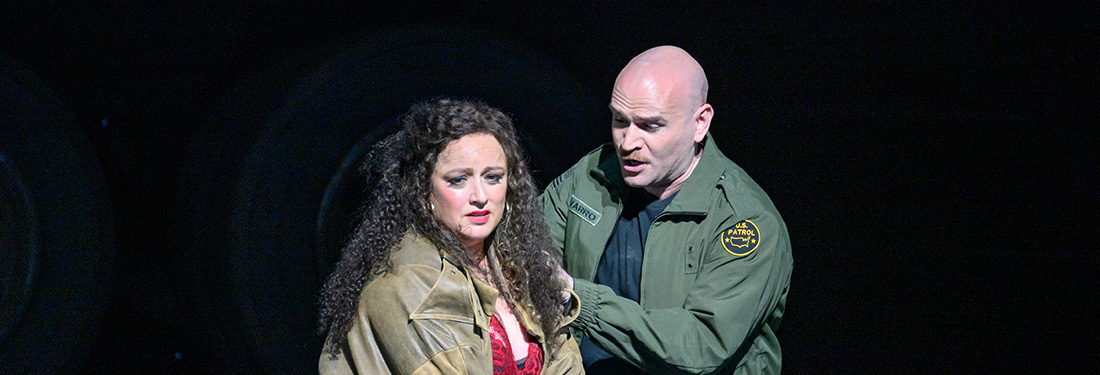
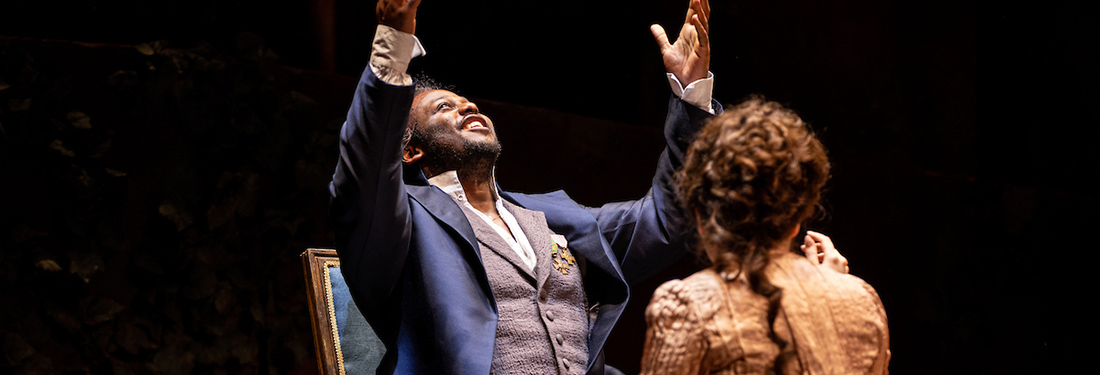
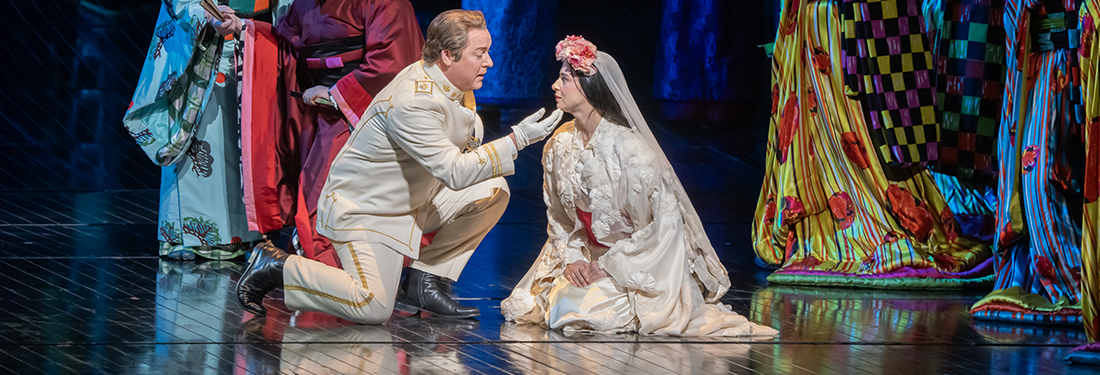
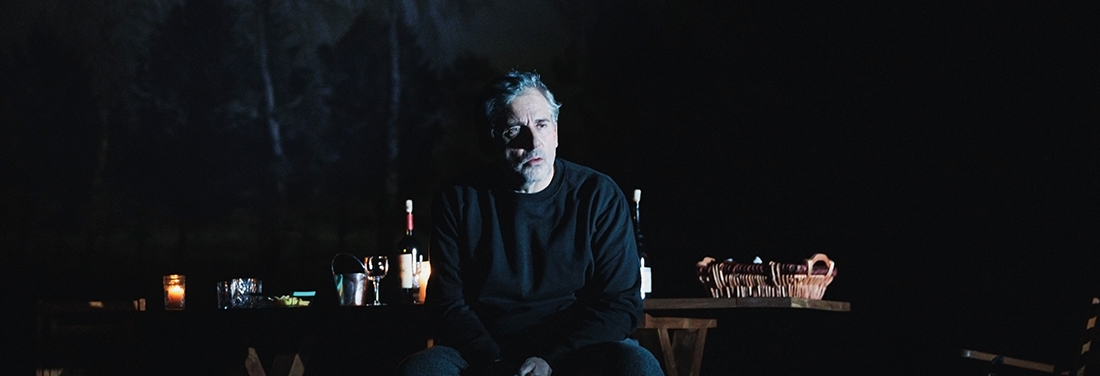
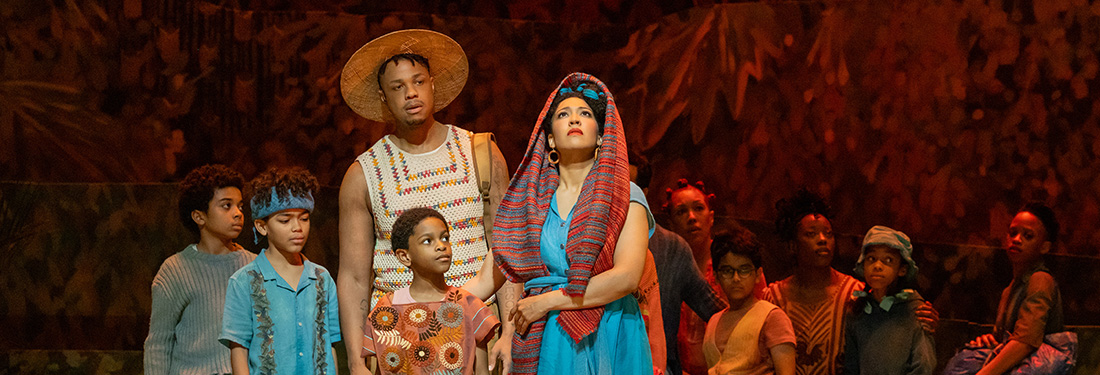
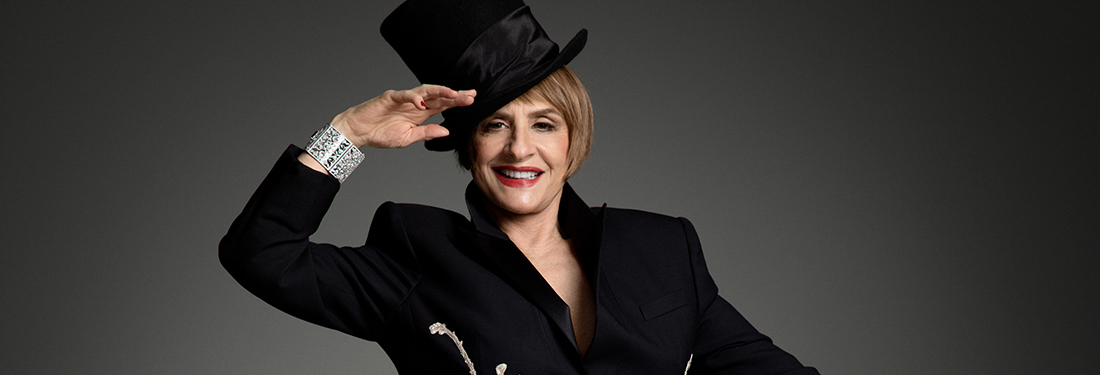
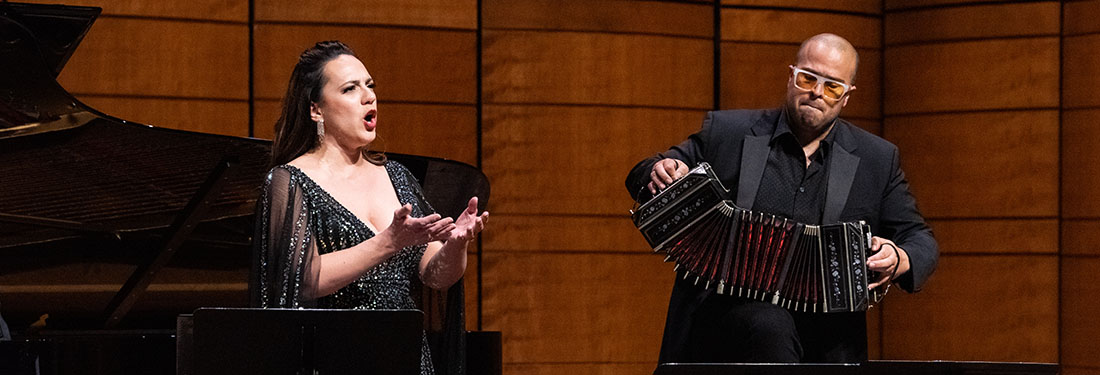
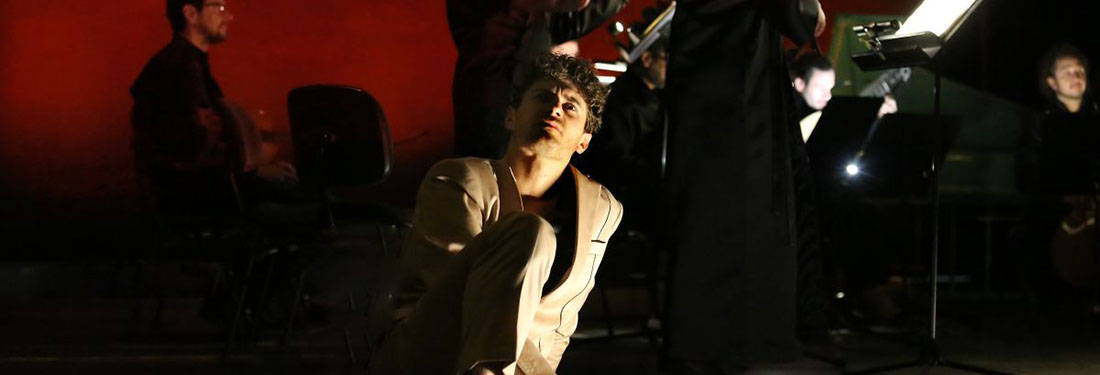
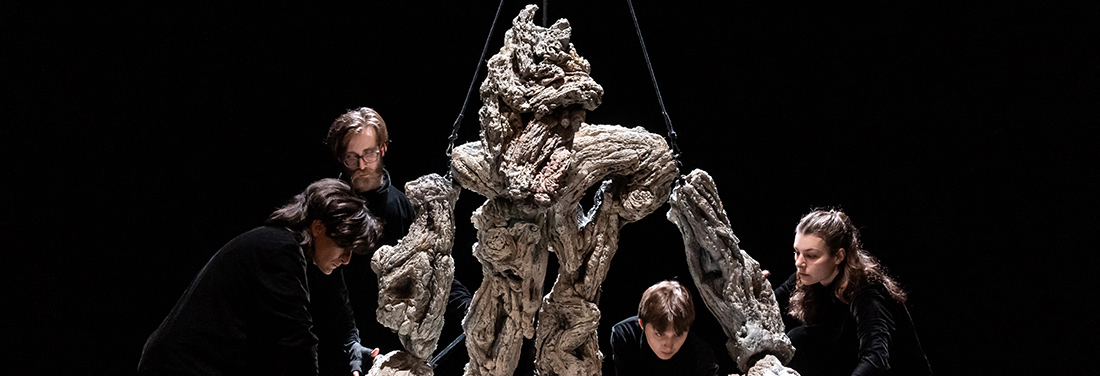
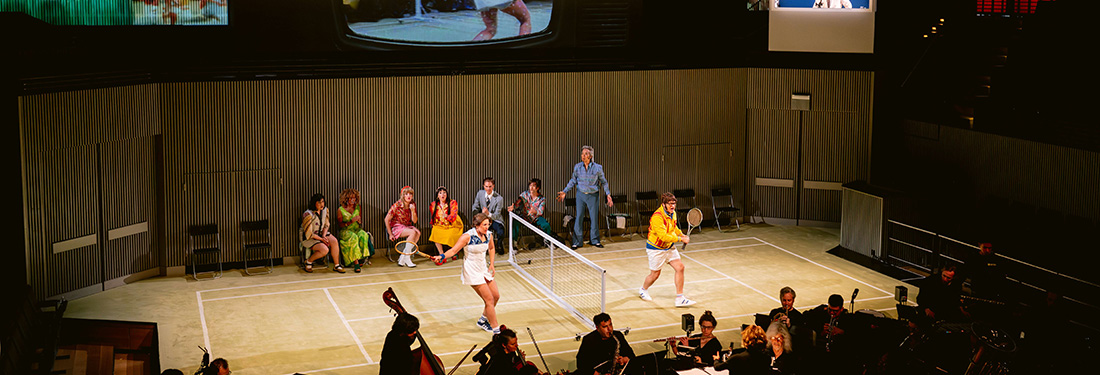
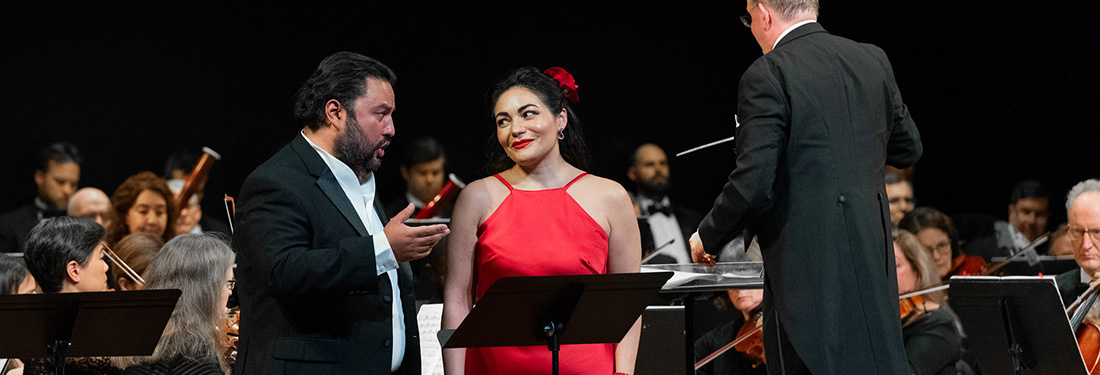
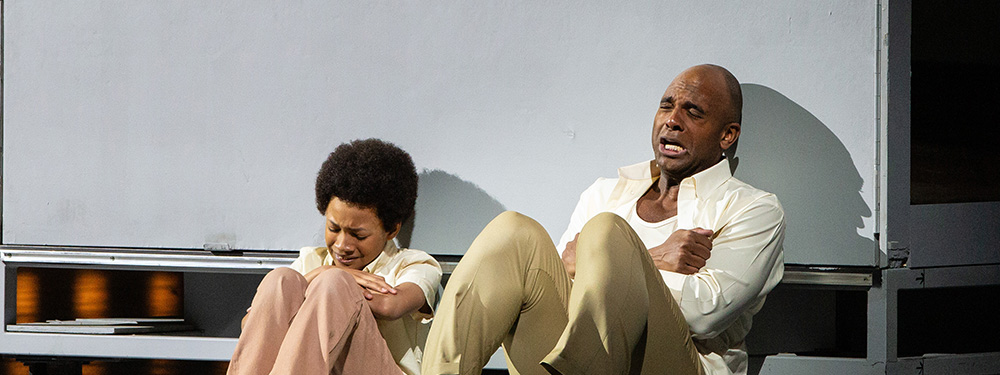
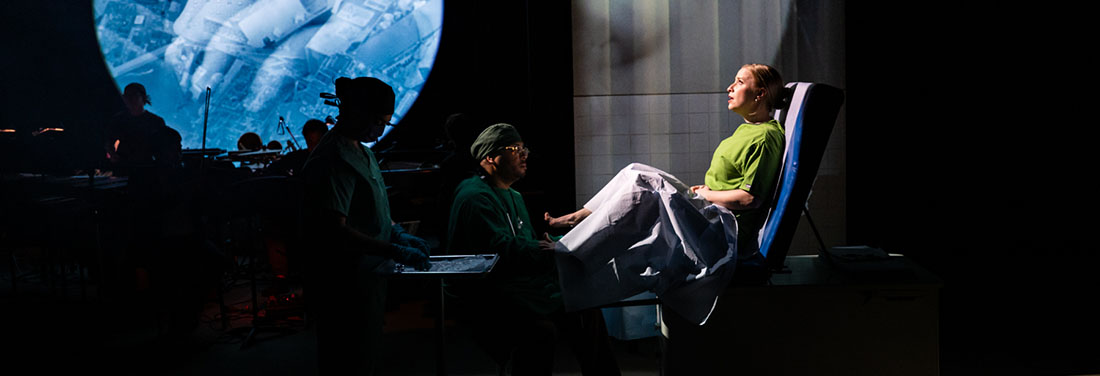
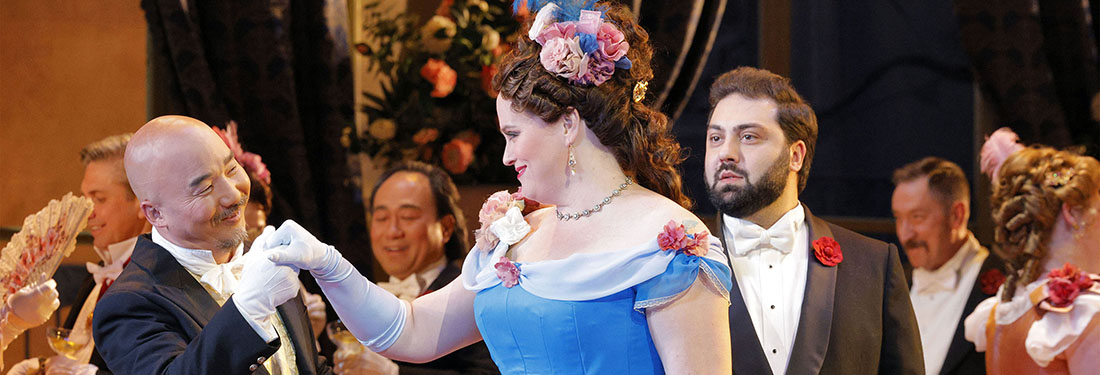
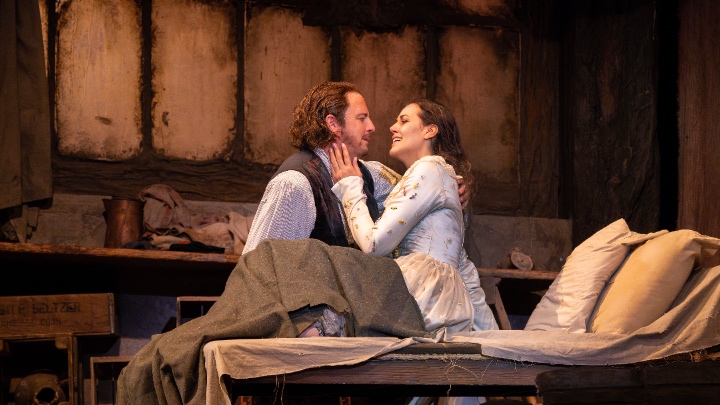
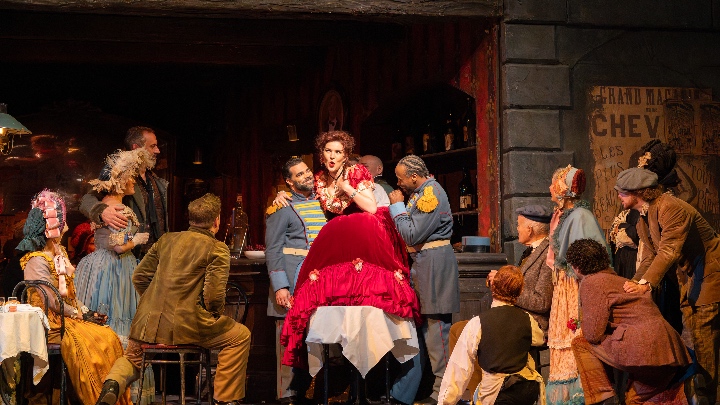
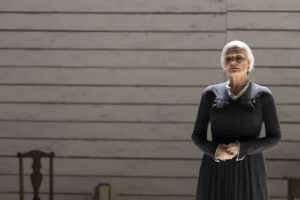
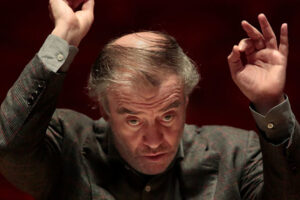


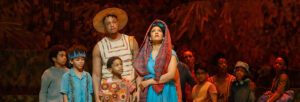




Comments